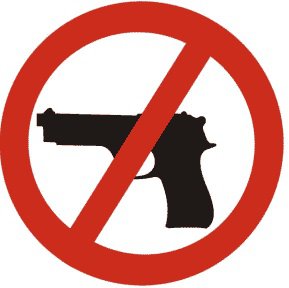5-4 in favor of individual gun rights, meaning that you can own a gun for self-defense and hunting (rather than for being in the militia, which arugably is what the Second Amendment says). Justice Scalia wrote the opinion, joined by Chief Justice Roberts and Justices Kennedy, Thomas, and Alito. Justice Breyer dissented, joined by Justices Stevens, Souter, and Ginsburg; there’s also apparently another dissent. MSNBC reports that the opinion "went further than even the Bush Adminstration hoped for". Great.
The ruling is here (PDF), but good luck getting it right now. Site seems to be flooded.
UPDATE: Apparently, Stevens (and perhaps others) in the dissent believed it to be an individual right as well, but thought that D.C.’s ban was a permissible restriction.
UPDATE: From Scotusblog:
Individuals have a constitutional right to possess a basic firearm (the line drawn is unclear, but does not extend to automatic weapons) and to use it in self-defense. The government can prohibit possession of firearms by, for example, felons and the mentally ill. And it can also regulate the sale of firearms, presumably through background checks.
The opinion leaves open the question whether the Second Amendment is incorporated against the States, but strongly suggests it is. So today’s ruling likely applies equally to State regulation.
So it sounds like nothing has really changed; it only has the official stamp of approval from SCOTUS.
UPDATE: Still can’t get the opinion, but here are (reportedly) some selected quotes from it:
“Logic demands that there be a link between the stated purpose and the command.”
“We start therefore with a strong presumption that the Second Amendment right is exercised individually and belongs to all Americans.”
“the most natural reading of ‘keep Arms’ in the Second Amendment is to “have weapons.”
“The term was applied, then as now, to weapons that were not specifically designed for military use and were not employed in a military capacity.”
“Putting all of these textual elements together, we find that they guarantee the individual right to possess and carry weapons in case of confrontation.”
“Thus, we do not read the Second Amendment to protect the right of citizens to carry arms for any sort of confrontation, just as we do not read the First Amendment to protect the right of citizens to speak for any purpose.”
“The prefatory clause does not suggest that preserving the militia was the only reason Americans valued the ancient right; most undoubtedly thought it even more important for self-defense and hunting.”
Whoa. I gotta stop there. The prefatory clause of the Second Amendment says (in full): "A well regulated militia being necessary to the security of a free State, ….".
That clause does suggest that the militia was the only reason, since it is the ONLY reason mentioned.
Furthermore, what’s with this "most undoubtedly thought it even more important for self-defense and hunting"? What? Is the majority mindreaders? And even assuming that is true, maybe it is more IMPORTANT, but that doesn’t mean they intended to make it a RIGHT. Ugh.
Back to more selected quotes from the majority opinion….
“It was plainly the understanding in the post-Civil War Congress that the Second Amendment protected an individual right to use arms for self-defense.”
“Like most rights, the right secured by the Second Amendment is not unlimited.”
“Although we do not undertake an exhaustive historical analysis today of the full scope of the Second Amendment, nothing in our opinion should be taken to cast doubt on longstanding prohibitions on the possession of firearms by felons and the mentally ill, or laws forbidding the carrying of firearms in sensitive places such as schools and government buildings, or laws imposing conditions and qualifications on the commercial sale of arms.”
“We also recognize another important limitation on the right to keep and carry arms. Miller said, as we have explained, that the sorts of weapons protected were those ‘in common use at the time.’ 307 U. S., at 179.”
“Whatever the reason, handguns are the most popular weapon chosen by Americans for self-defense in the home, and a complete prohibition of their use is invalid.”
“In sum, we hold that the District’s ban on handgun possession in the home violates the Second Amendment, as does its prohibition against rendering any lawful firearm in the home operable for the purpose of immediate self-defense. Assuming that Heller is not disqualified from the exercise of Second Amendment rights, the District must permit him to register his handgun and must issue him a license to carry it in the home.”
On the question of the Second Amendment’s application to the States: “With respect to Cruikshank’s continuing validity on incorporation, a question not presented by this case, we note that Cruikshank also said that the First Amendment did not apply against the States and did not engage in the sort of Fourteenth Amendment inquiry required by our later cases. Our later decisions in Presser v. Illinois, 116 U. S. 252, 265 (1886) and Miller v. Texas, 153 U. S. 535, 538 (1894), reaffirmed that the Second Amendment applies only to the Federal Government.”
That last bit is important. Remember, this case involves D.C., which is all federal law. Doesn’t look like incorporation is happening, so states still can go further to ban guns.

